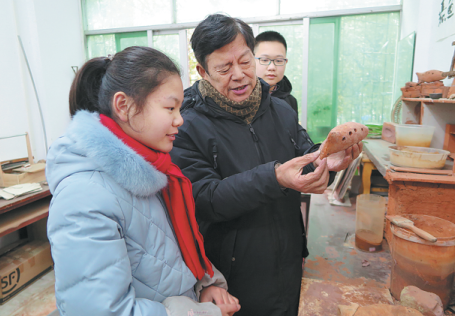Heritage item
By Huang Zhiling | China Daily | Updated: 2019-03-12 09:01

"Members of the troupe joined the charity performances in Bangkok and Chiang Mai (Thailand) and Seoul and Busan (South Korea) to raise public awareness about people with disabilities," Bi says.
To mark the holding of the United Nations Millennium Summit at the UN headquarters in New York, the China Disabled People's Performing Art Troupe visited the United States in 2000, and performed at the John F. Kennedy Arts Center in Washington and Carnegie Hall in New York. They visited Seattle, San Francisco and Hawaii as well.
When the troupe arrived in Honolulu, Hawaii, Bi and some performers from the troupe paid a visit to Chang Hsueh-liang (1901-2001) along with Deng Pufang.
Chang was a mastermind of the Xi'an Incident in Shaanxi province in 1936 that led to the arrest of Chiang Kai-shek, forcing the Kuomintang to enter into a truce with the Communist Party of China to form a united front against Japan, which had occupied Northeast China. As a result, Chang spent decades under house arrest before migrating to Honolulu in 1993.
Bi played a piece about how Chinese soldiers fought on Mount Taihang in North China during the War of Resistance Against Japanese Aggression (1931-45). The music cheered up Chang, who was in a wheelchair, Bi says. Chang was in low spirits because his wife Edith Chao had passed away around then.
Since Bi retired from the county cultural center nine years ago, he has been involved in training young people to play the wudu.
Tong Xin, head of the Jiayu county intangible cultural heritage center, says the county wants to be known as the "hometown of wudu" since the instrument made Hubei's heritage list in 2007.
So far, 12 training centers have been set up in the county under the guidance of Bi and his daughter, Bi Qin, another well-known wudu player.
Contact the writer at huangzhiling@chinadaily.com.cn
























